Overheating private education
입력 2025.03.14 (01:04)
수정 2025.03.14 (02:25)
읽어주기 기능은 크롬기반의
브라우저에서만 사용하실 수 있습니다.
[Anchor]
The early childhood private education market is heating up to the extent that terms like 'exam for 7-year-olds' and even 'exams for 4-year-olds' have emerged.
According to a government survey, nearly half of preschool children are receiving private education.
Last year, the private education expenses for elementary, middle, and high school students reached an all-time high for the fourth consecutive year.
Kim Ha-eun and Ko Ah-reum will report on the overheating private education situation.
[Report]
Have you heard of the term 'exam for 7-year-olds'?
It refers to the entrance exam that must be passed for children to enter a renowned English academy before starting elementary school.
Recently, the term 'exam for 4-year-olds' has also emerged.
This is a test to enter the so-called 'prestigious English kindergartens'.
Even babies who can barely walk are being pushed into the private education market.
The government has released its first survey results on the previously untracked private education market for infants and toddlers.
It was found that 1 in 2 children under 6 years old (47.6%) are receiving private education.
The average monthly private education expense is 332,000 won.
Since some items were excluded from the survey, the actual amount may be higher.
If sent to an English kindergarten, the average monthly cost was 1,545,000 won.
This is more expensive than college tuition.
From July to September last year, the total amount spent on private education for infants and toddlers exceeded 810 billion won.
When children enter school, private education expenses increase even more.
Last year, 80% of elementary, middle, and high school students nationwide received private education.
The total private education expenses increased by 7.7% to 29.2 trillion won, also breaking the record for the fourth consecutive year.
Despite a decrease in the actual number of students due to low birth rates, total private education expenses have actually increased.
This means that the per capita private education expenses have risen sharply.
The average monthly private education expense for high school students living in Seoul has surpassed 1 million won for the first time since the survey began.
Recently, the term 'edu-poor' has been added to the dictionary as a newly-coined word.
It refers to those living in poverty due to excessive education expenses.
Despite the government's commitment to curb private education, the reality is that private education is still overheating.
Ko Ah-reum continues the report.
[Report]
The 'medical school preparation class' starts from the 6th grade of elementary school.
Even though the program requires at least three years of advanced early learning to enter, there is no availability.
['Medical school class' academy official/voice altered: "We conduct tests for 6th graders. Only those who have reached the advanced level of 3rd year middle school are eligible."]
It is common in so-called 'academic districts' to have advanced early learning by 2-3 years.
Parents' anxiety about falling behind is fueling competition in private education.
[Elementary school parent/voice altered: "I think they are done with English by the time they finish kindergarten. My daughter wants to go, but the academy says she's already too far behind."]
The fluctuating college entrance exam policies have also fueled private education.
The policy to abolish 'killer questions' was announced just a few months before the college entrance exam.
The sudden announcement of an increase in medical school admissions and the expansion of non-major admissions last year are representative examples.
Confused students and parents are seeking solutions in the private education market rather than public education.
In fact, last year's private education expenses were significantly influenced by the medical school admission increase policy, particularly among students in the top 10% of test-takers.
[Yang Jeong-ho/Professor of Education at Sungkyunkwan University: "The period when interest and costs for private education skyrocket is most evident when the government's entrance exam policies change. It requires at least three years of early proactive response..."]
Education Minister Lee Ju-ho stated that the government has not met the public's expectations and announced plans to meet with education superintendents from various regions tomorrow (Mar. 14) to discuss measures to reduce private education.
This is KBS News, Ko Ah-reum.
The early childhood private education market is heating up to the extent that terms like 'exam for 7-year-olds' and even 'exams for 4-year-olds' have emerged.
According to a government survey, nearly half of preschool children are receiving private education.
Last year, the private education expenses for elementary, middle, and high school students reached an all-time high for the fourth consecutive year.
Kim Ha-eun and Ko Ah-reum will report on the overheating private education situation.
[Report]
Have you heard of the term 'exam for 7-year-olds'?
It refers to the entrance exam that must be passed for children to enter a renowned English academy before starting elementary school.
Recently, the term 'exam for 4-year-olds' has also emerged.
This is a test to enter the so-called 'prestigious English kindergartens'.
Even babies who can barely walk are being pushed into the private education market.
The government has released its first survey results on the previously untracked private education market for infants and toddlers.
It was found that 1 in 2 children under 6 years old (47.6%) are receiving private education.
The average monthly private education expense is 332,000 won.
Since some items were excluded from the survey, the actual amount may be higher.
If sent to an English kindergarten, the average monthly cost was 1,545,000 won.
This is more expensive than college tuition.
From July to September last year, the total amount spent on private education for infants and toddlers exceeded 810 billion won.
When children enter school, private education expenses increase even more.
Last year, 80% of elementary, middle, and high school students nationwide received private education.
The total private education expenses increased by 7.7% to 29.2 trillion won, also breaking the record for the fourth consecutive year.
Despite a decrease in the actual number of students due to low birth rates, total private education expenses have actually increased.
This means that the per capita private education expenses have risen sharply.
The average monthly private education expense for high school students living in Seoul has surpassed 1 million won for the first time since the survey began.
Recently, the term 'edu-poor' has been added to the dictionary as a newly-coined word.
It refers to those living in poverty due to excessive education expenses.
Despite the government's commitment to curb private education, the reality is that private education is still overheating.
Ko Ah-reum continues the report.
[Report]
The 'medical school preparation class' starts from the 6th grade of elementary school.
Even though the program requires at least three years of advanced early learning to enter, there is no availability.
['Medical school class' academy official/voice altered: "We conduct tests for 6th graders. Only those who have reached the advanced level of 3rd year middle school are eligible."]
It is common in so-called 'academic districts' to have advanced early learning by 2-3 years.
Parents' anxiety about falling behind is fueling competition in private education.
[Elementary school parent/voice altered: "I think they are done with English by the time they finish kindergarten. My daughter wants to go, but the academy says she's already too far behind."]
The fluctuating college entrance exam policies have also fueled private education.
The policy to abolish 'killer questions' was announced just a few months before the college entrance exam.
The sudden announcement of an increase in medical school admissions and the expansion of non-major admissions last year are representative examples.
Confused students and parents are seeking solutions in the private education market rather than public education.
In fact, last year's private education expenses were significantly influenced by the medical school admission increase policy, particularly among students in the top 10% of test-takers.
[Yang Jeong-ho/Professor of Education at Sungkyunkwan University: "The period when interest and costs for private education skyrocket is most evident when the government's entrance exam policies change. It requires at least three years of early proactive response..."]
Education Minister Lee Ju-ho stated that the government has not met the public's expectations and announced plans to meet with education superintendents from various regions tomorrow (Mar. 14) to discuss measures to reduce private education.
This is KBS News, Ko Ah-reum.
■ 제보하기
▷ 카카오톡 : 'KBS제보' 검색, 채널 추가
▷ 전화 : 02-781-1234, 4444
▷ 이메일 : kbs1234@kbs.co.kr
▷ 유튜브, 네이버, 카카오에서도 KBS뉴스를 구독해주세요!
- Overheating private education
-
- 입력 2025-03-14 01:04:47
- 수정2025-03-14 02:25:48

[Anchor]
The early childhood private education market is heating up to the extent that terms like 'exam for 7-year-olds' and even 'exams for 4-year-olds' have emerged.
According to a government survey, nearly half of preschool children are receiving private education.
Last year, the private education expenses for elementary, middle, and high school students reached an all-time high for the fourth consecutive year.
Kim Ha-eun and Ko Ah-reum will report on the overheating private education situation.
[Report]
Have you heard of the term 'exam for 7-year-olds'?
It refers to the entrance exam that must be passed for children to enter a renowned English academy before starting elementary school.
Recently, the term 'exam for 4-year-olds' has also emerged.
This is a test to enter the so-called 'prestigious English kindergartens'.
Even babies who can barely walk are being pushed into the private education market.
The government has released its first survey results on the previously untracked private education market for infants and toddlers.
It was found that 1 in 2 children under 6 years old (47.6%) are receiving private education.
The average monthly private education expense is 332,000 won.
Since some items were excluded from the survey, the actual amount may be higher.
If sent to an English kindergarten, the average monthly cost was 1,545,000 won.
This is more expensive than college tuition.
From July to September last year, the total amount spent on private education for infants and toddlers exceeded 810 billion won.
When children enter school, private education expenses increase even more.
Last year, 80% of elementary, middle, and high school students nationwide received private education.
The total private education expenses increased by 7.7% to 29.2 trillion won, also breaking the record for the fourth consecutive year.
Despite a decrease in the actual number of students due to low birth rates, total private education expenses have actually increased.
This means that the per capita private education expenses have risen sharply.
The average monthly private education expense for high school students living in Seoul has surpassed 1 million won for the first time since the survey began.
Recently, the term 'edu-poor' has been added to the dictionary as a newly-coined word.
It refers to those living in poverty due to excessive education expenses.
Despite the government's commitment to curb private education, the reality is that private education is still overheating.
Ko Ah-reum continues the report.
[Report]
The 'medical school preparation class' starts from the 6th grade of elementary school.
Even though the program requires at least three years of advanced early learning to enter, there is no availability.
['Medical school class' academy official/voice altered: "We conduct tests for 6th graders. Only those who have reached the advanced level of 3rd year middle school are eligible."]
It is common in so-called 'academic districts' to have advanced early learning by 2-3 years.
Parents' anxiety about falling behind is fueling competition in private education.
[Elementary school parent/voice altered: "I think they are done with English by the time they finish kindergarten. My daughter wants to go, but the academy says she's already too far behind."]
The fluctuating college entrance exam policies have also fueled private education.
The policy to abolish 'killer questions' was announced just a few months before the college entrance exam.
The sudden announcement of an increase in medical school admissions and the expansion of non-major admissions last year are representative examples.
Confused students and parents are seeking solutions in the private education market rather than public education.
In fact, last year's private education expenses were significantly influenced by the medical school admission increase policy, particularly among students in the top 10% of test-takers.
[Yang Jeong-ho/Professor of Education at Sungkyunkwan University: "The period when interest and costs for private education skyrocket is most evident when the government's entrance exam policies change. It requires at least three years of early proactive response..."]
Education Minister Lee Ju-ho stated that the government has not met the public's expectations and announced plans to meet with education superintendents from various regions tomorrow (Mar. 14) to discuss measures to reduce private education.
This is KBS News, Ko Ah-reum.
The early childhood private education market is heating up to the extent that terms like 'exam for 7-year-olds' and even 'exams for 4-year-olds' have emerged.
According to a government survey, nearly half of preschool children are receiving private education.
Last year, the private education expenses for elementary, middle, and high school students reached an all-time high for the fourth consecutive year.
Kim Ha-eun and Ko Ah-reum will report on the overheating private education situation.
[Report]
Have you heard of the term 'exam for 7-year-olds'?
It refers to the entrance exam that must be passed for children to enter a renowned English academy before starting elementary school.
Recently, the term 'exam for 4-year-olds' has also emerged.
This is a test to enter the so-called 'prestigious English kindergartens'.
Even babies who can barely walk are being pushed into the private education market.
The government has released its first survey results on the previously untracked private education market for infants and toddlers.
It was found that 1 in 2 children under 6 years old (47.6%) are receiving private education.
The average monthly private education expense is 332,000 won.
Since some items were excluded from the survey, the actual amount may be higher.
If sent to an English kindergarten, the average monthly cost was 1,545,000 won.
This is more expensive than college tuition.
From July to September last year, the total amount spent on private education for infants and toddlers exceeded 810 billion won.
When children enter school, private education expenses increase even more.
Last year, 80% of elementary, middle, and high school students nationwide received private education.
The total private education expenses increased by 7.7% to 29.2 trillion won, also breaking the record for the fourth consecutive year.
Despite a decrease in the actual number of students due to low birth rates, total private education expenses have actually increased.
This means that the per capita private education expenses have risen sharply.
The average monthly private education expense for high school students living in Seoul has surpassed 1 million won for the first time since the survey began.
Recently, the term 'edu-poor' has been added to the dictionary as a newly-coined word.
It refers to those living in poverty due to excessive education expenses.
Despite the government's commitment to curb private education, the reality is that private education is still overheating.
Ko Ah-reum continues the report.
[Report]
The 'medical school preparation class' starts from the 6th grade of elementary school.
Even though the program requires at least three years of advanced early learning to enter, there is no availability.
['Medical school class' academy official/voice altered: "We conduct tests for 6th graders. Only those who have reached the advanced level of 3rd year middle school are eligible."]
It is common in so-called 'academic districts' to have advanced early learning by 2-3 years.
Parents' anxiety about falling behind is fueling competition in private education.
[Elementary school parent/voice altered: "I think they are done with English by the time they finish kindergarten. My daughter wants to go, but the academy says she's already too far behind."]
The fluctuating college entrance exam policies have also fueled private education.
The policy to abolish 'killer questions' was announced just a few months before the college entrance exam.
The sudden announcement of an increase in medical school admissions and the expansion of non-major admissions last year are representative examples.
Confused students and parents are seeking solutions in the private education market rather than public education.
In fact, last year's private education expenses were significantly influenced by the medical school admission increase policy, particularly among students in the top 10% of test-takers.
[Yang Jeong-ho/Professor of Education at Sungkyunkwan University: "The period when interest and costs for private education skyrocket is most evident when the government's entrance exam policies change. It requires at least three years of early proactive response..."]
Education Minister Lee Ju-ho stated that the government has not met the public's expectations and announced plans to meet with education superintendents from various regions tomorrow (Mar. 14) to discuss measures to reduce private education.
This is KBS News, Ko Ah-reum.
-
-
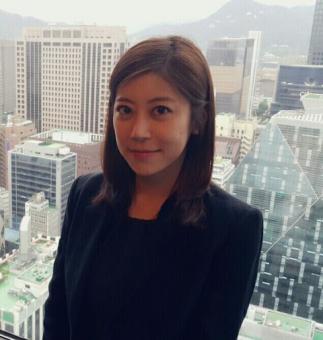
고아름 기자 areum@kbs.co.kr
고아름 기자의 기사 모음 -
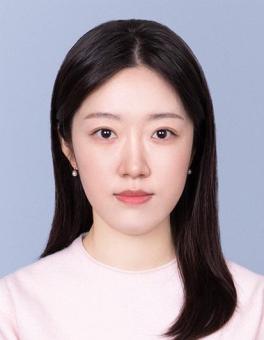
김하은 hani@kbs.co.kr
김하은의 기사 모음
-
이 기사가 좋으셨다면
-
좋아요
0
-
응원해요
0
-
후속 원해요
0










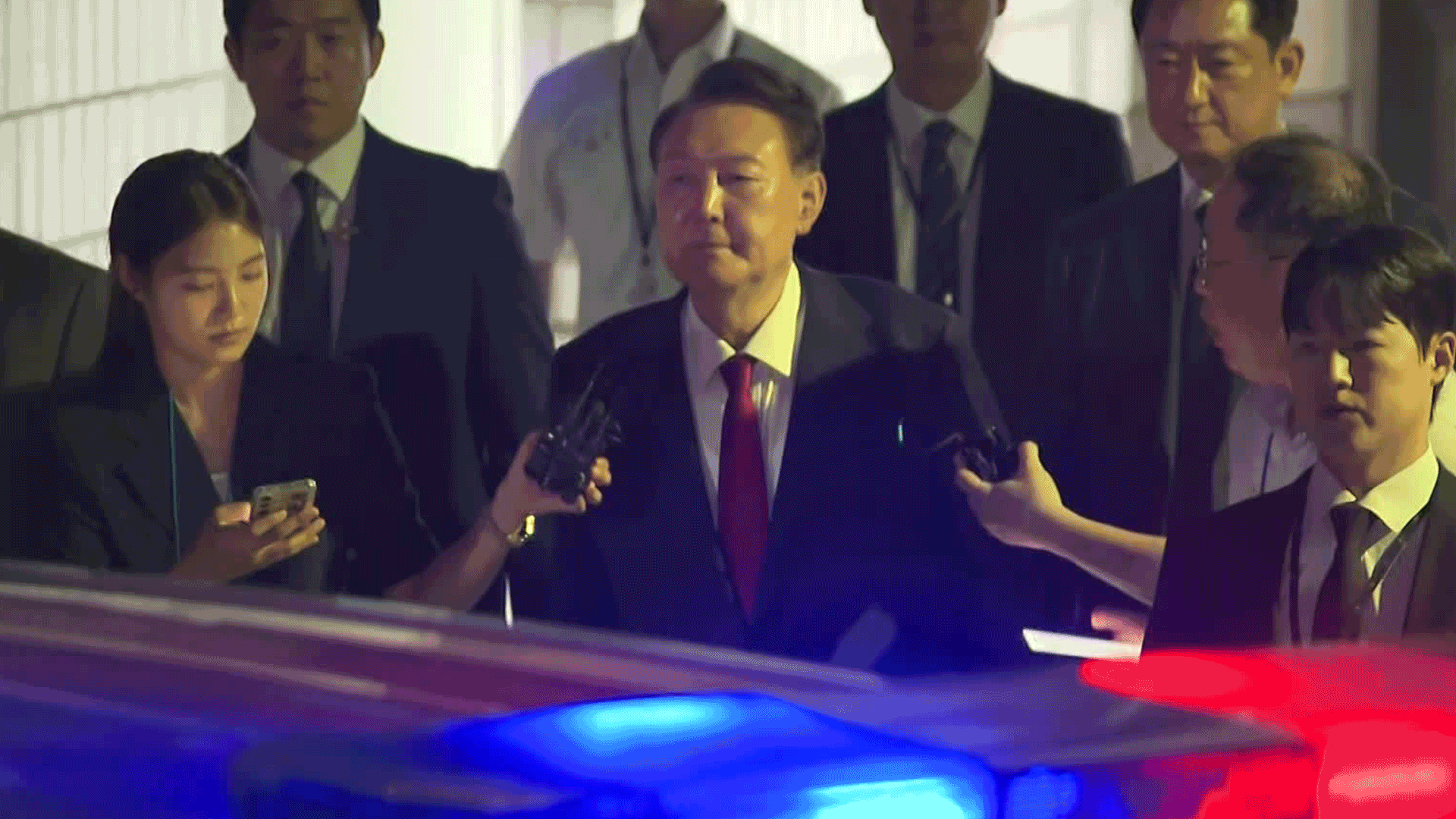
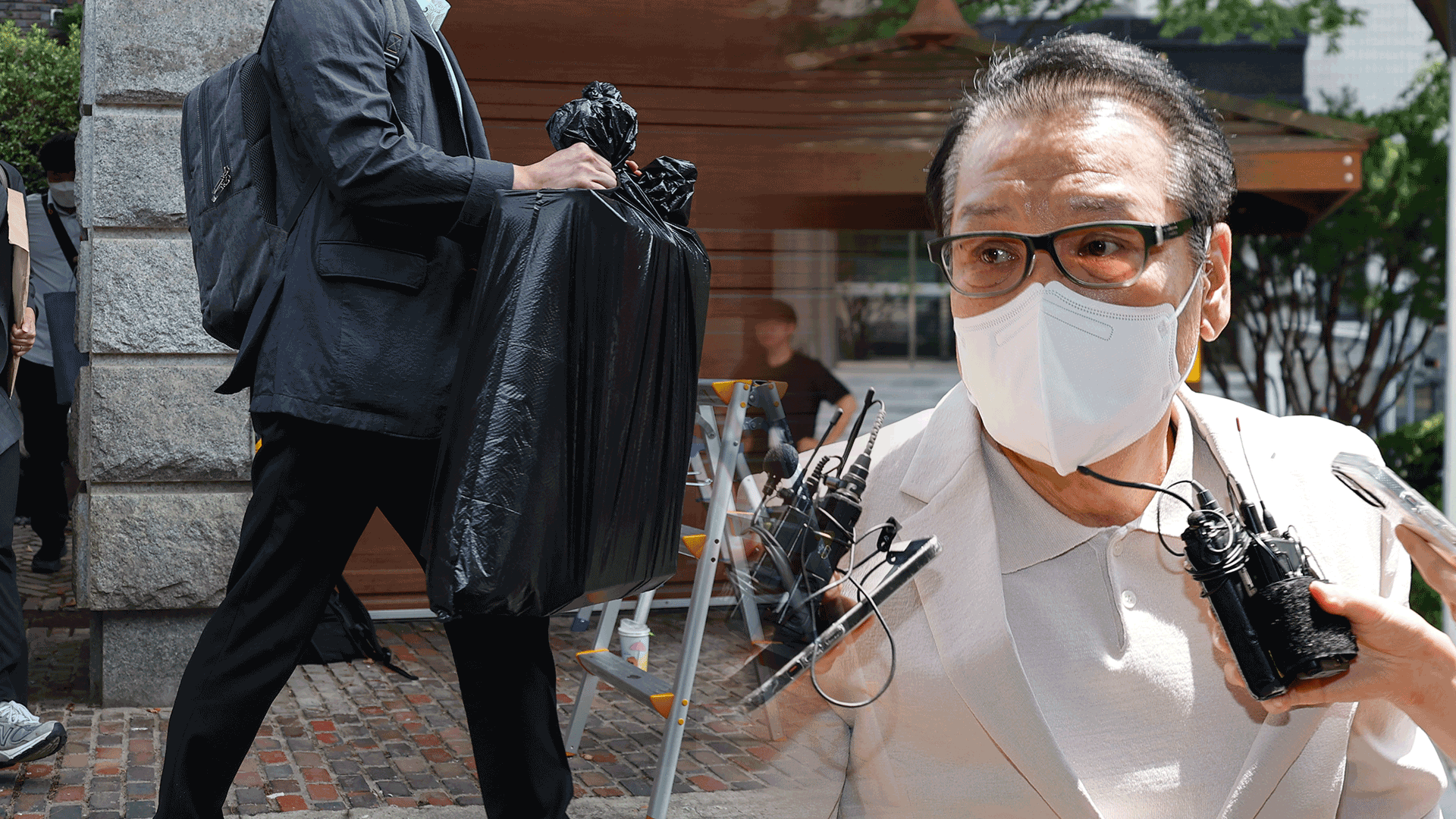
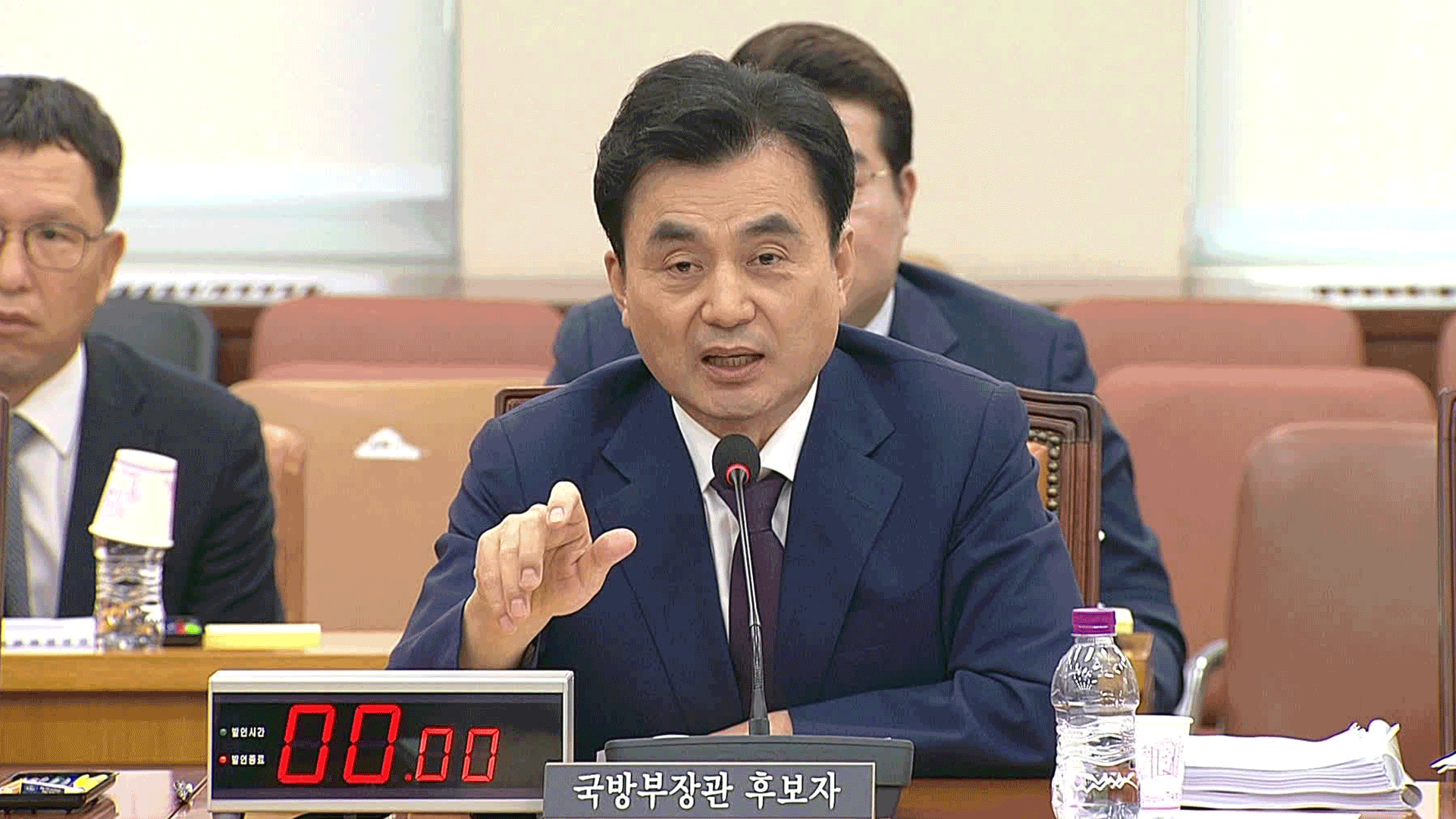
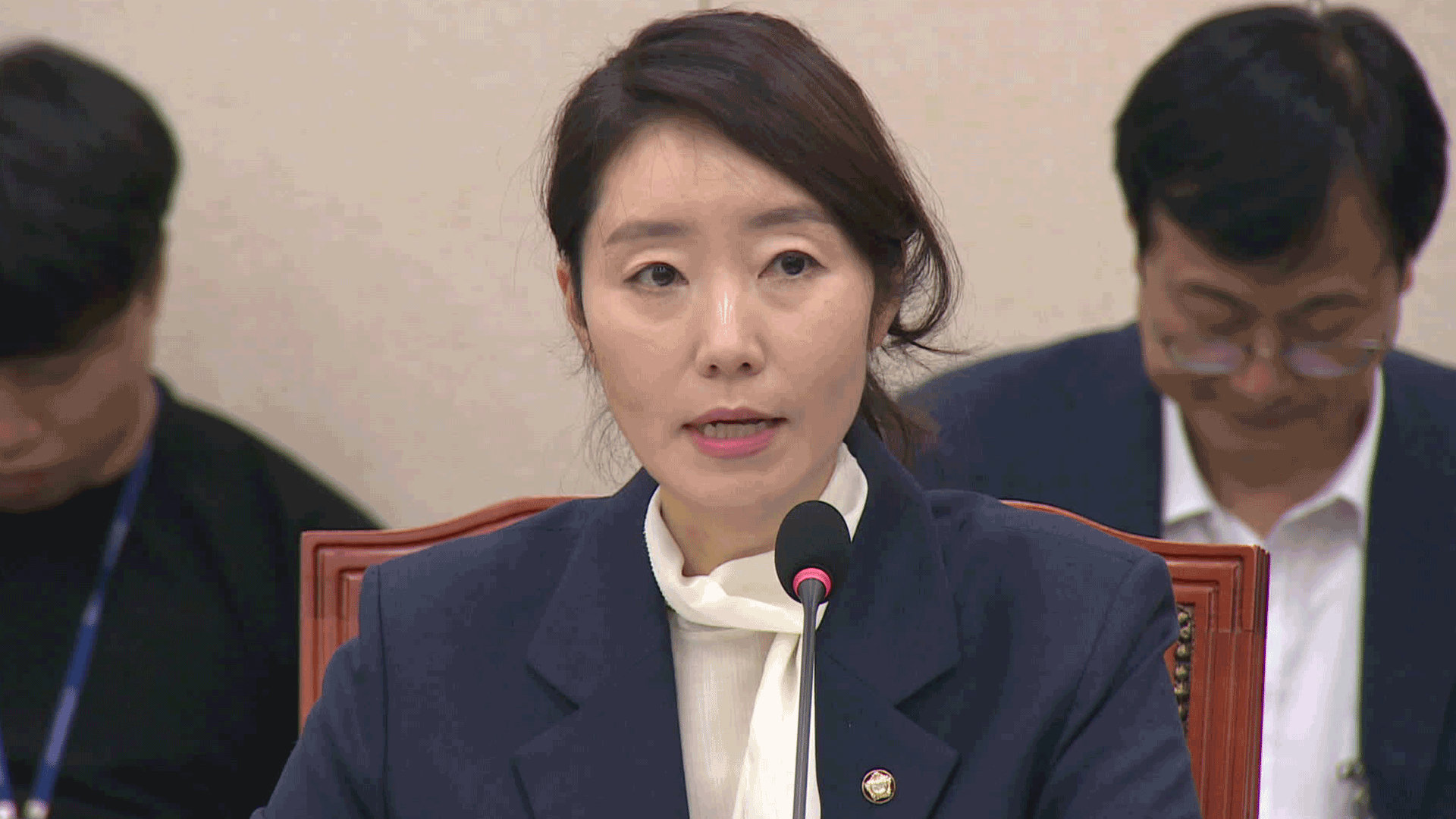

이 기사에 대한 의견을 남겨주세요.